Understanding the ‘Hangry’ Phenomenon
The ‘hangry’ feeling is a physiological response affecting mood and behavior.
While not an official medical diagnosis, being “hangry” is a physiological response. When blood sugar levels drop, your body releases stress hormones like cortisol and adrenaline. These hormones can trigger irritability, frustration, and even anger – hence the term “hangry.”
Dr. Deena Adimoolam, an assistant professor in the division of endocrinology at the Icahn School of Medicine at Mount Sinai, explains: “When we do not eat, our blood sugar goes low, and one of the main symptoms of low blood sugar is irritability.”
Your body perceives low blood sugar as a threat to survival, triggering the fight-or-flight response. This biological reaction explains why you might feel frantic, emotional, or quick to anger when you haven’t eaten for a while.
The Science Behind Hunger and Anger
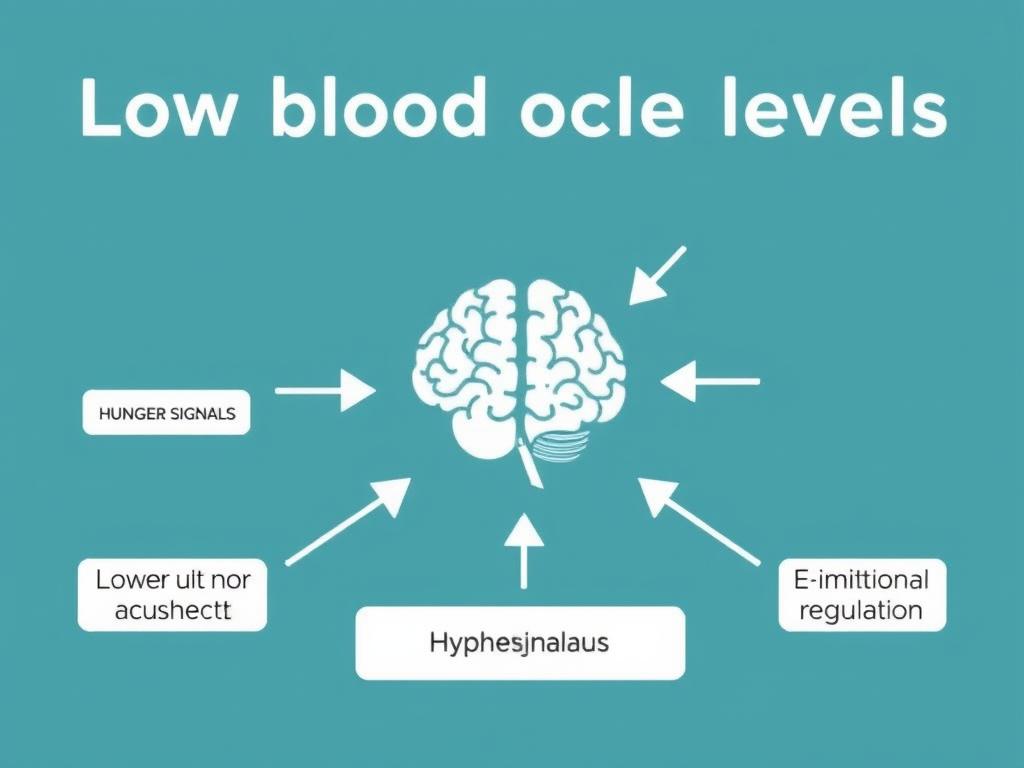
Research confirms the connection between hunger and negative emotions. A 2022 study published in the journal PLoS ONE found that participants frequently associated hunger with feelings of anger and irritability. The researchers concluded that these hunger-associated negative emotions led to what we now call “hanger.”
Another fascinating study from 2014 discovered that married couples with lower blood sugar levels showed more anger and aggression toward their partners. This suggests that hanger doesn’t just affect how we feel – it impacts our relationships too!
When your blood glucose drops, your brain’s ability to regulate emotions suffers; when you’re hungry, your fuse is shorter, and you’re less able to control your reactions. This explains why minor annoyances can feel like significant provocations when you haven’t eaten.
5 Actionable Tips to Prevent the ‘Hangry’ Feeling

Let’s explore five practical strategies to avoid hunger, focusing on avoiding the ‘hangry’ feeling. Your future self will thank you for implementing these simple yet powerful habits!
1. Balance Your Blood Sugar with Smart Meal Planning
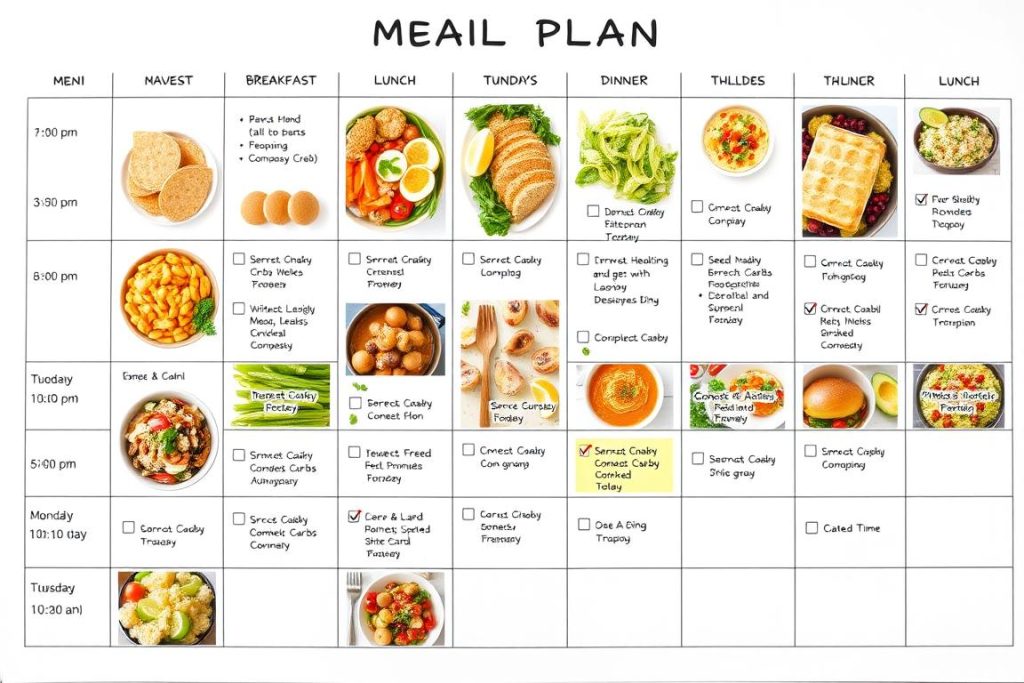
Maintaining stable blood sugar levels throughout the day is the key to avoiding hangovers. Plan your meals to include a balance of:
- Protein (eggs, chicken, fish, tofu, legumes)
- Healthy fats (avocado, nuts, olive oil)
- Complex carbohydrates (whole grains, vegetables)
- Fiber (fruits, vegetables, legumes)
This combination slows digestion and provides a steady release of energy, preventing the blood sugar spikes and crashes that can trigger hanger. Avoid eating refined carbohydrates alone, which can cause rapid blood sugar fluctuations.
2. Pack Strategic Snacks for On-the-Go
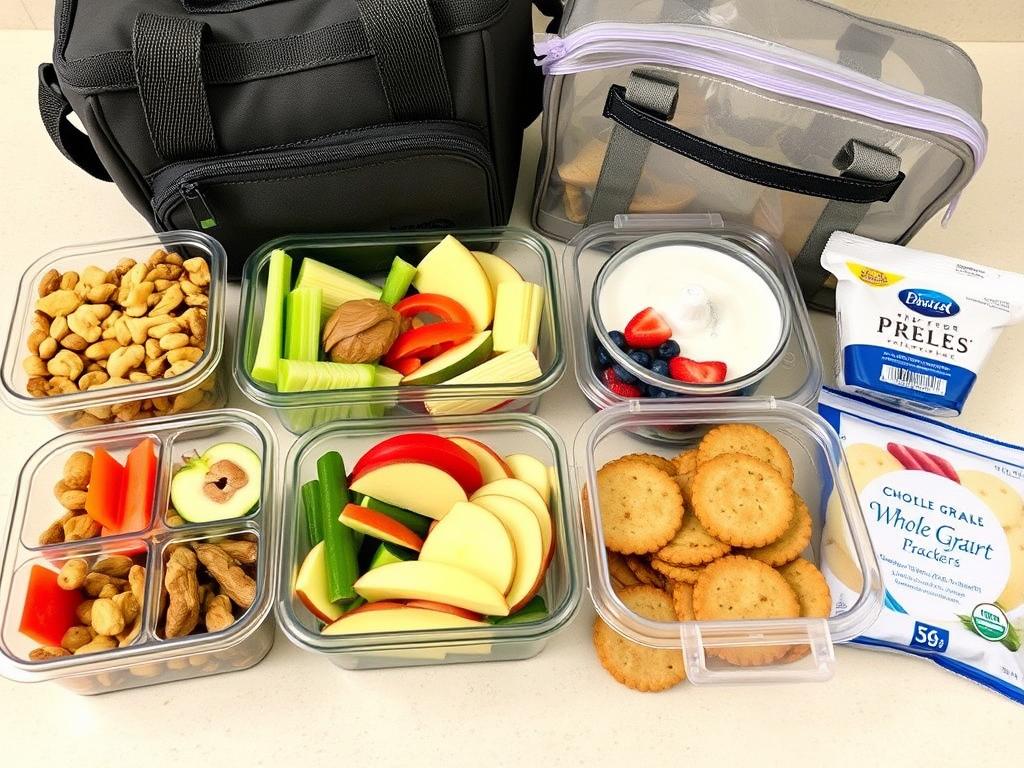
Don’t get caught empty-handed when hunger strikes! Keep these balanced snack combinations ready:
- Apple slices with 1-2 tablespoons of almond butter
- Greek yogurt with berries and a sprinkle of granola
- A small handful of mixed nuts and dried fruit
- Whole grain crackers with cheese
- Hummus with carrot and cucumber sticks
- Hard-boiled egg with a piece of fruit
- Edamame pods with a sprinkle of sea salt
- Cottage cheese with pineapple chunks
These combinations provide the perfect balance of nutrients to stabilize your blood sugar and mood. Store shelf-stable options in your car, desk drawer, or bag so you’re never caught without a hanger-preventing snack.
3. Hydration Hacks: When Thirst Masquerades as Hunger

Did you know that thirst often disguises itself as hunger? Dehydration can mimic hunger signals and contribute to irritability and fatigue, which overlap with hunger.
Try these hydration strategies:
- Start your day with a full glass of water before breakfast
- Set reminders to drink water every 1-2 hours
- Carry a reusable water bottle with measurement markings
- Infuse water with fruits or herbs for flavor without added sugar
- Consume hydrating foods like cucumber, watermelon, and oranges
When you feel hunger pangs between meals, drink a glass of water first and wait 15 minutes. You might discover that you were thirsty, not hungry!
4. Practice Mindful Eating to Recognize True Hunger

Mindful eating helps you distinguish between true hunger and emotional eating triggers. By paying attention to your body’s signals, you can prevent hanger before it starts:
- Eat without distractions (no phones, TV, or computers)
- Chew slowly and savor each bite
- Check in with your hunger level before, during, and after eating
- Use the hunger-satiety scale (1 = starving, 10 = uncomfortably full)
- Aim to eat when you’re at a 3 or 4 (hungry but not ravenous)
Recognizing early signs of hunger – like slight stomach emptiness, difficulty concentrating, or mild irritability – can help you address hunger before it escalates to full-blown hanger.
5. Manage Stress to Reduce Hangover Vulnerability

Stress and hunger are closely connected. When stressed, your body releases cortisol, the hormone that regulates hunger. This can make you more vulnerable to hangover episodes.
Try these stress-management techniques:
- Practice deep breathing for 5 minutes before meals
- Take short movement breaks throughout the day
- Get adequate sleep (7-9 hours for most adults)
- Spend time in nature when possible
- Consider meditation or mindfulness practices
By managing stress, you can reduce your susceptibility to hunger and improve your overall relationship with food and mood.
Timing Matters: Meal Frequency to Prevent Energy Crashes
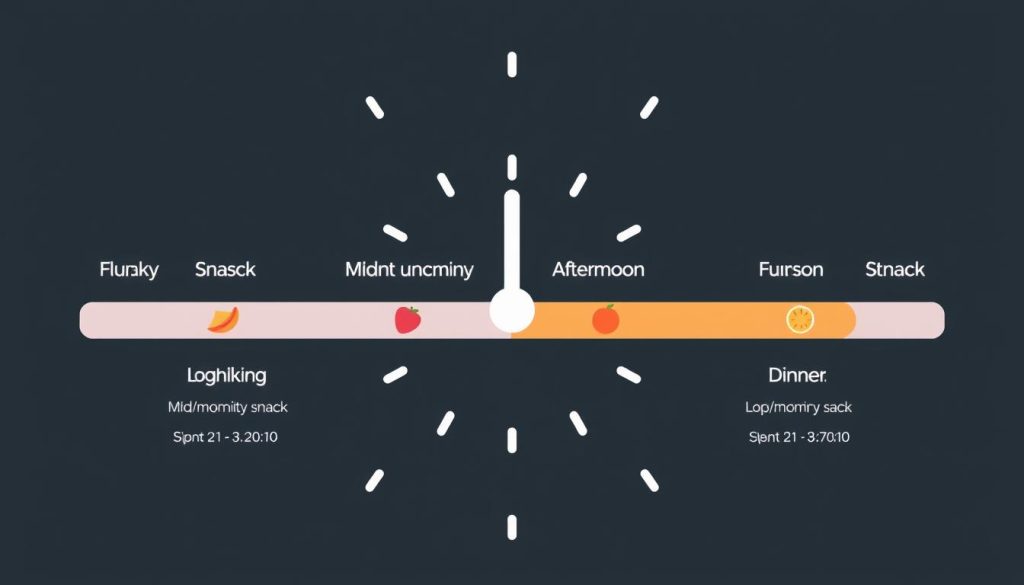
The timing of your meals plays a crucial role in preventing hunger. While there’s no one-size-fits-all approach, these guidelines can help you maintain stable energy levels throughout the day:
“It varies by every individual, but the lower your blood sugar, the hungrier you are. It’s our body’s defense mechanism to get food ASAP.” – Dr. Adimoolam
Find Your Ideal Eating Schedule
Most nutrition experts recommend eating every 3-4 hours to maintain stable blood sugar levels. This typically translates to:
- Breakfast within 1-2 hours of waking
- Mid-morning snack (if needed)
- Lunch 3-4 hours after breakfast
- Afternoon snack 3-4 hours after lunch
- Dinner 3-4 hours after your snack
Pay attention to your body’s unique hunger patterns. Some people do well with three larger meals, while others need smaller, more frequent meals and snacks. The key is consistency – irregular eating patterns can trigger blood sugar fluctuations and increase your risk of hanger. By focusing on avoiding the ‘hangry’ feeling, you can create a meal schedule that works best for you, ensuring stable energy levels throughout the day.
The 15-15 Rule for Blood Sugar Management
If you’re already experiencing low blood sugar symptoms, try the 15-15 rule:
- Consume 15 grams of simple carbohydrates (like fruit juice, honey, or glucose tablets)
- Wait 15 minutes
- Check how you feel – if symptoms persist, repeat
- Once you feel better, eat a balanced snack or meal with protein and healthy fats
This approach can quickly address low blood sugar while setting you up for more stable levels.
Real-Life Examples: Balanced Snack Combinations
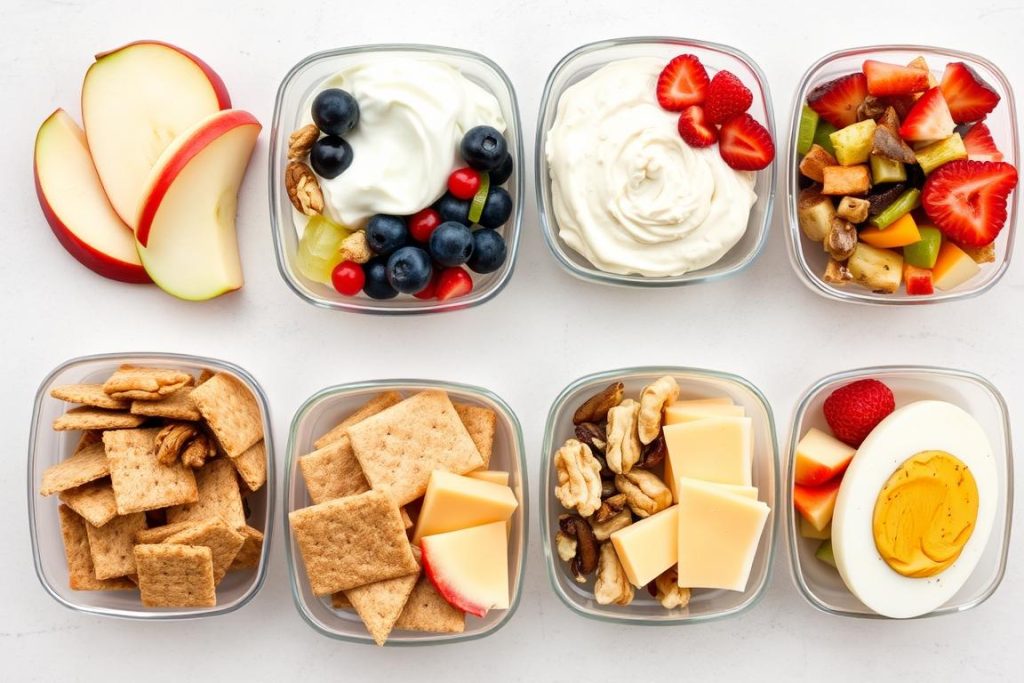
Let’s look at some practical, easy-to-prepare snack combinations that real people use to keep hunger at bay:
Morning Stabilizers
- Overnight oats with Greek yogurt and berries
- Whole grain toast with avocado and a hard-boiled egg
- Smoothie with spinach, banana, protein powder, and almond butter
Afternoon Energizers
- Trail mix with nuts, seeds, and a few dark chocolate chips
- Celery sticks with peanut butter and raisins
- Roasted chickpeas with olive oil and spices
Evening Satisfiers
- Plain Greek yogurt with cinnamon and a drizzle of honey
- Sliced turkey rolled with avocado and cucumber
- Cottage cheese with pineapple and a sprinkle of nuts
Pro Tip: Prep several snack combinations at the beginning of the week and store them in grab-and-go containers. This makes it easy to prevent hanger even during your busiest days!
Conquering Hanger: Your Action Plan

Understanding and preventing hanger is about more than just avoiding awkward social situations – it’s about supporting your overall wellbeing. Avoiding the ‘hangry’ feeling by maintaining stable blood sugar levels can improve your mood, energy, concentration, and relationships.
Remember these key strategies:
- Balance your meals with protein, healthy fats, and complex carbs
- Keep strategic snacks accessible at all times
- Stay hydrated throughout the day
- Practice mindful eating to recognize true hunger
- Manage stress to reduce hanger vulnerability
- Establish a consistent eating schedule that works for your body
With these tools in your wellness toolkit, you can say goodbye to those hanger-induced moments of irritability and enjoy more stable energy and mood throughout your day. No, carbohydrates are an essential energy source. Understanding and preventing hanger is about more than just avoiding awkward social situations – it’s about supporting your overall wellbeing. The key is choosing complex carbohydrates (whole grains, vegetables, legumes) over refined ones (white bread, pastries, sugary drinks) and pairing them with protein and healthy fats to slow digestion and sustain energy. Avoiding the ‘hangry’ feeling by maintaining stable blood sugar levels can improve your mood, energy, concentration, and relationships. Your body – and everyone around you – will thank you!
Frequently Asked Questions About Avoiding the ‘Hangry’ Feeling
How quickly can ‘hanger’ develop after my last meal?
The timing varies for each person, but most people start experiencing hunger-related irritability about 3-4 hours after their last meal. Factors like meal composition, metabolic rate, activity level, and stress can all influence how quickly you might feel hangry.
Are some people more prone to feeling ‘hangry’ than others?
Yes! Genetic factors related to the leptin gene (LEP gene) can influence how your body responds to hunger. Additionally, people with faster metabolisms, those who are very active, and individuals with certain medical conditions like hypoglycemia may experience hunger more frequently or intensely.
Can drinking coffee on an empty stomach make ‘hanger’ worse?
For many people, yes. Caffeine can stimulate the release of stress hormones and potentially lower blood sugar, which may intensify feelings of irritability when you’re already hungry. Try having your coffee alongside a balanced breakfast instead of on an empty stomach.
Should I avoid all carbs to prevent blood sugar crashes?
No, carbohydrates are an essential energy source. Understanding and preventing hanger is about more than just avoiding awkward social situations – it’s about supporting your overall wellbeing. The key is choosing complex carbohydrates (whole grains, vegetables, legumes) over refined ones (white bread, pastries, sugary drinks) and pairing them with protein and healthy fats to slow digestion and sustain energy. Avoiding the ‘hangry’ feeling by maintaining stable blood sugar levels can improve your mood, energy, concentration, and relationships.
